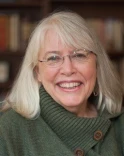Johnny Overcast, ’90, spends his time thinking about our ‘always-on’ world. More specifically, he is a voice for how mobile technology can transform government.
Overcast, the senior director of government sales at Samsung Electronics America, is masterful at detailing how mobile platforms can transform everything from federal procurement to on-the-ground military rescue operations to treatment at Veterans Administration hospitals. For his work in advancing off-the-shelf mobile technology systems, customized to meet government security standards within the Department of Defense, Overcast has been honored with a FedScoop 50 Award for industry leadership.
“It was a great honor to win the award,” said Overcast, who joined Samsung in 2012. He described the government as being “at an inflection point” when it comes to mobile technology, adding that the ability to adapt commercial mobile technology for government use is a game changer.
“We’ve brought [to government] a commercial off-the-shelf technology that is secure enough to warrant Department of Defense-grade security approvals,” Overcast explained.
The annual FedScoop honors go to 50 government and private sector leaders chosen from among thousands nominated in eight categories. The latest winners were determined from 400,000 votes cast between August and October 2017.
“The FedScoop 50 Awards celebrate the significant achievements of the top leaders in the federal IT community,” said Goldy Kamali, founder and CEO of the technology news platform FedScoop. She said the awards underscore ways that technology can make the government more efficient and effective.
They were created “as an opportunity to recognize the extraordinary achievements of the leaders in our community who are doing big things that impact us all,” she said.
According to Overcast, the mobile transformation of government has been coming in stages, and the breakthrough year is on the horizon.
“I believe what 2018 will show for Samsung, as it relates to my job, is virtual reality, augmented reality, artificial intelligence,” he said. “We’re ready to help the government revolutionize the way they train, the way they inspect, the way they do logistics, email and browsing.
“The next step for us … is how to include wearables,” he added.
Overcast said the adoption of technology goes beyond efficiency. It also responds to demands of the workforce.
“You’ve got millennials flooding the government. They want to use the technology that they’re used to using, and they’d like to do that in the workplace,” Overcast said. Among other things, he explained, workers need to reduce the number of devices they juggle. The same mobile phone used for telecommunicating, for example, could be put in a cradle and become a desktop phone.
Growing up with a global perspective
Overcast grew up in a military family on the move. He was born in Italy, where his father was stationed, then the family ricocheted among assignments: from Texas to Germany, from Greece to Louisiana. After graduating from high school in Germany, Overcast enrolled at UMUC Europe, studying on campuses in Munich and Heidelberg. He earned an associate degree in 1988 and, two years later, a bachelor’s degree in business administration.
“I represent an interesting base of alumni, people who grew up as [military] dependents in Europe and went to UMGC,” Overcast said. “I have quite a few friends who graduated in the same way from UMGC, from families with military backgrounds.
“UMGC allowed me the flexibility to work full time, be in school and also stay in Europe,” he said.
After graduation, Overcast had to make a decision. Should he remain in Europe, continue studying or return to the United States, a country he last lived in as a 12-year-old?
He decided to head to the states, specifically the Washington metro area, “with a couple of suits, a briefcase and a resume.” He began his job search on M Street and K Street and ended up in sales, selling copying machines and other office technology. It wasn’t long before the burgeoning wireless industry caught his attention. He joined Bell Mobile in 1994—launching his career in wireless technology.
Away from the office, Overcast said he describes himself as a “typical suburban dad,” living in Ellicott City, Maryland, with his wife, 13-year-old son and daughters, age 11 and 2. “My weekends are all about being immersed in this lovely family life, taking one child to tennis or spending time with my 2-year-old … or spending time together with my wife.”
Overcast said he sometimes feels that a greater purpose is driving his work at Samsung. “What’s been great for me in this space is to be part of helping government—which ultimately serves us, the citizens—to modernize and provide better and more transparent services,” he said.
Lastly, Overcast shares, “If you follow your passion, develop purpose, and incorporate rigorous career and life planning, the universe will conspire to help you achieve your goals.”
Click here to read more Alumni News.
